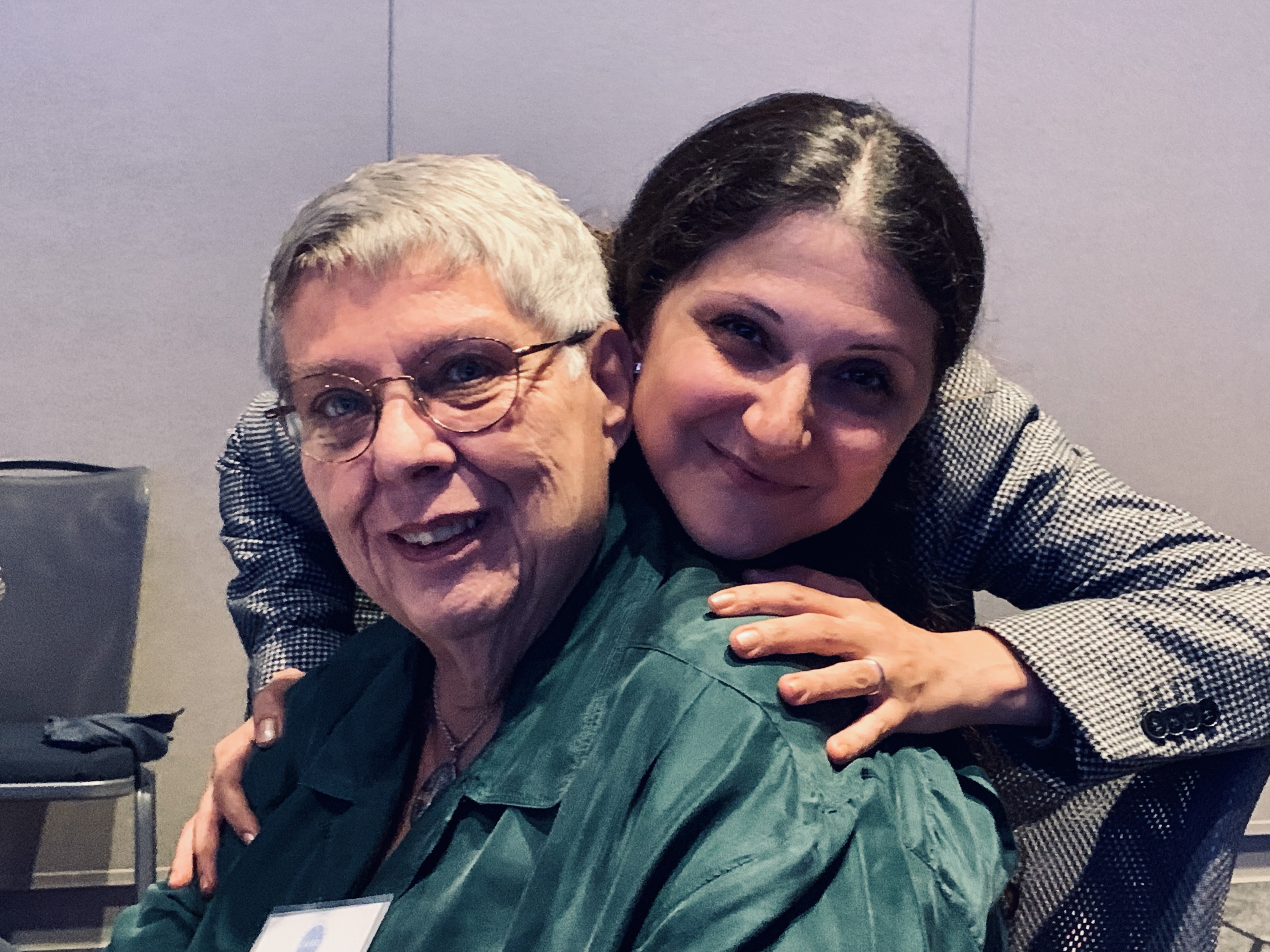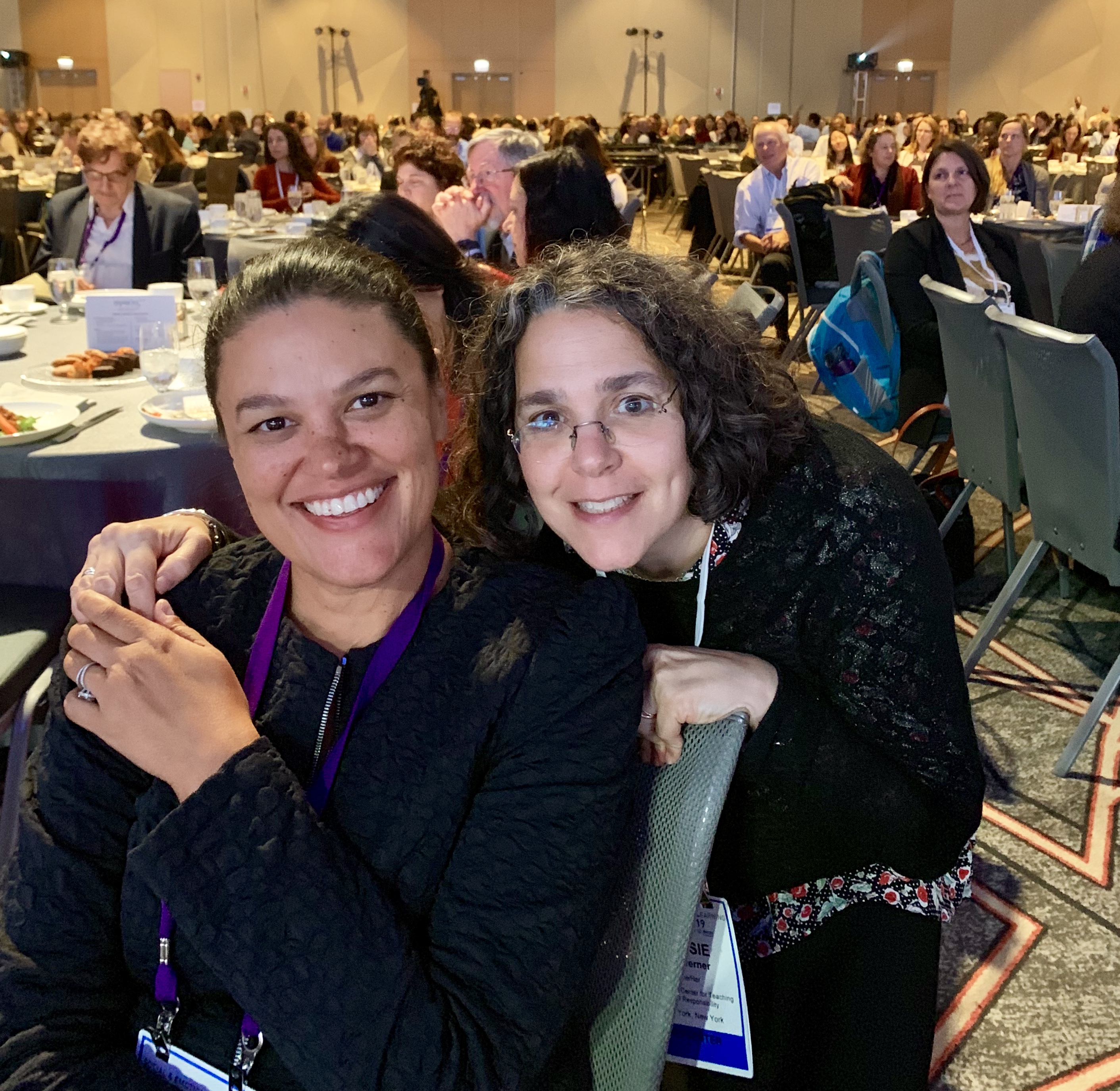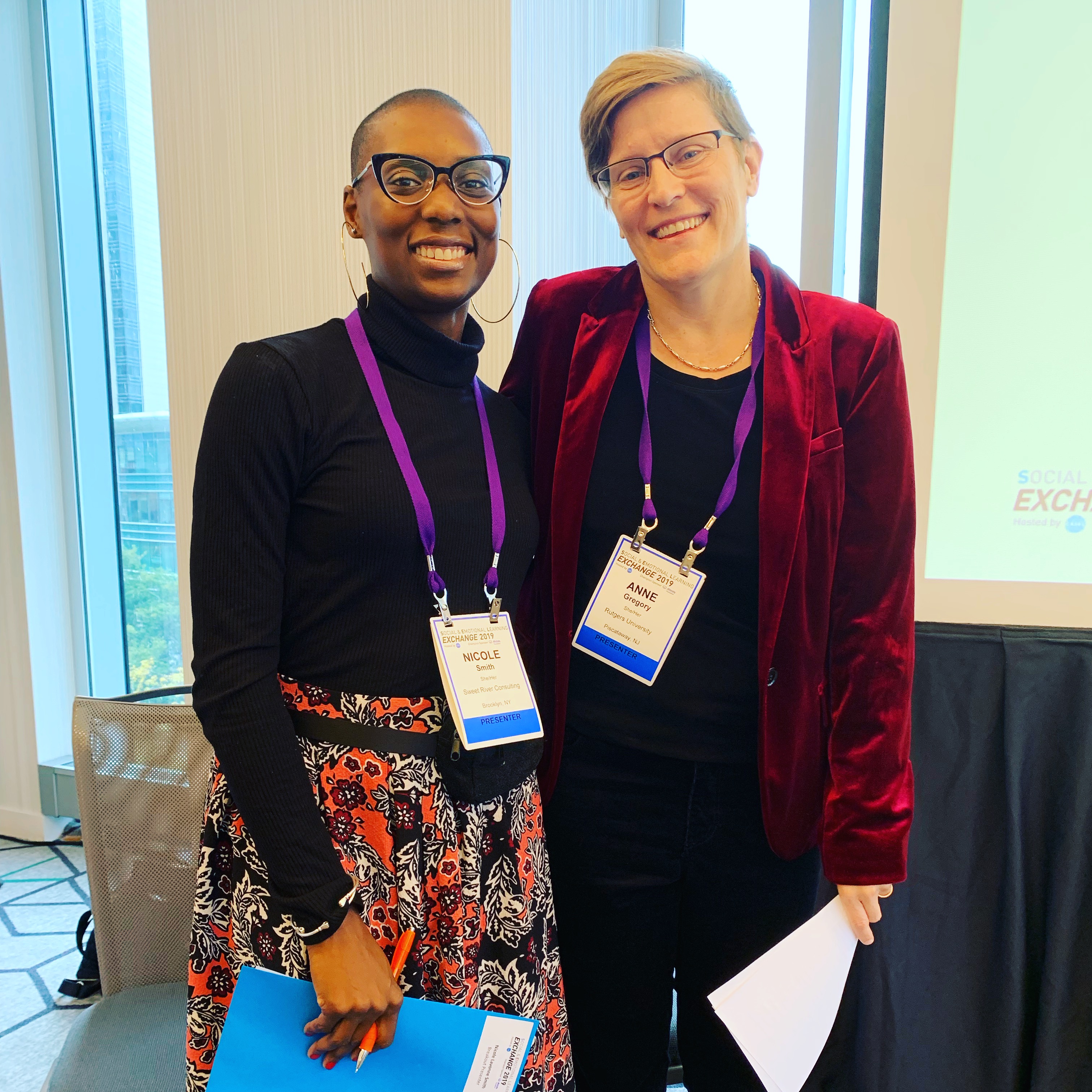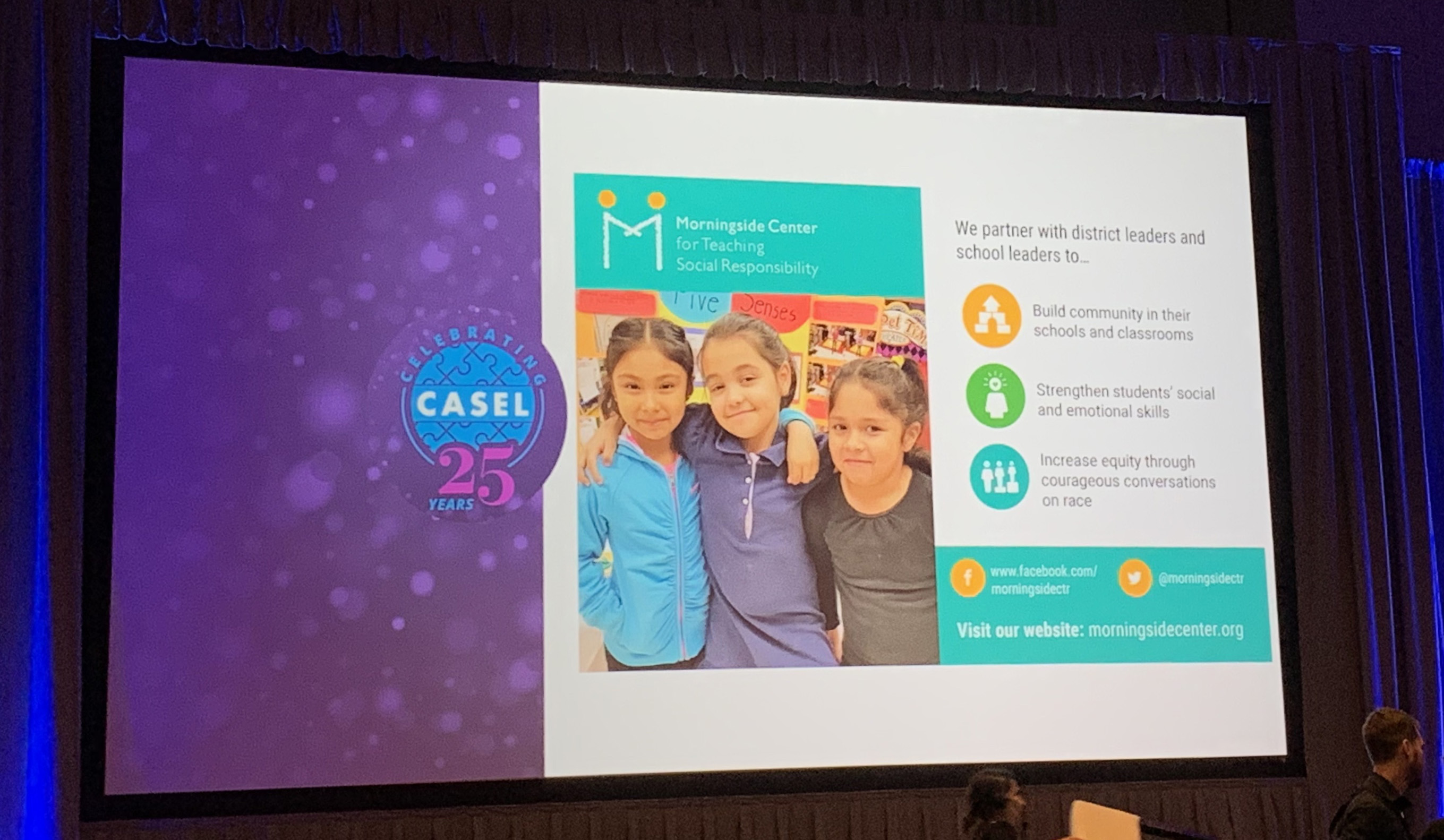SEL is Necessary But Not Sufficient
How can we advance racial equity in our schools through social and emotional learning? We had some great discussions about it at CASEL's recent SEL Exchange.
How can we advance racial equity in our schools through social and emotional learning? We had some great discussions about it at CASEL's recent SEL Exchange.
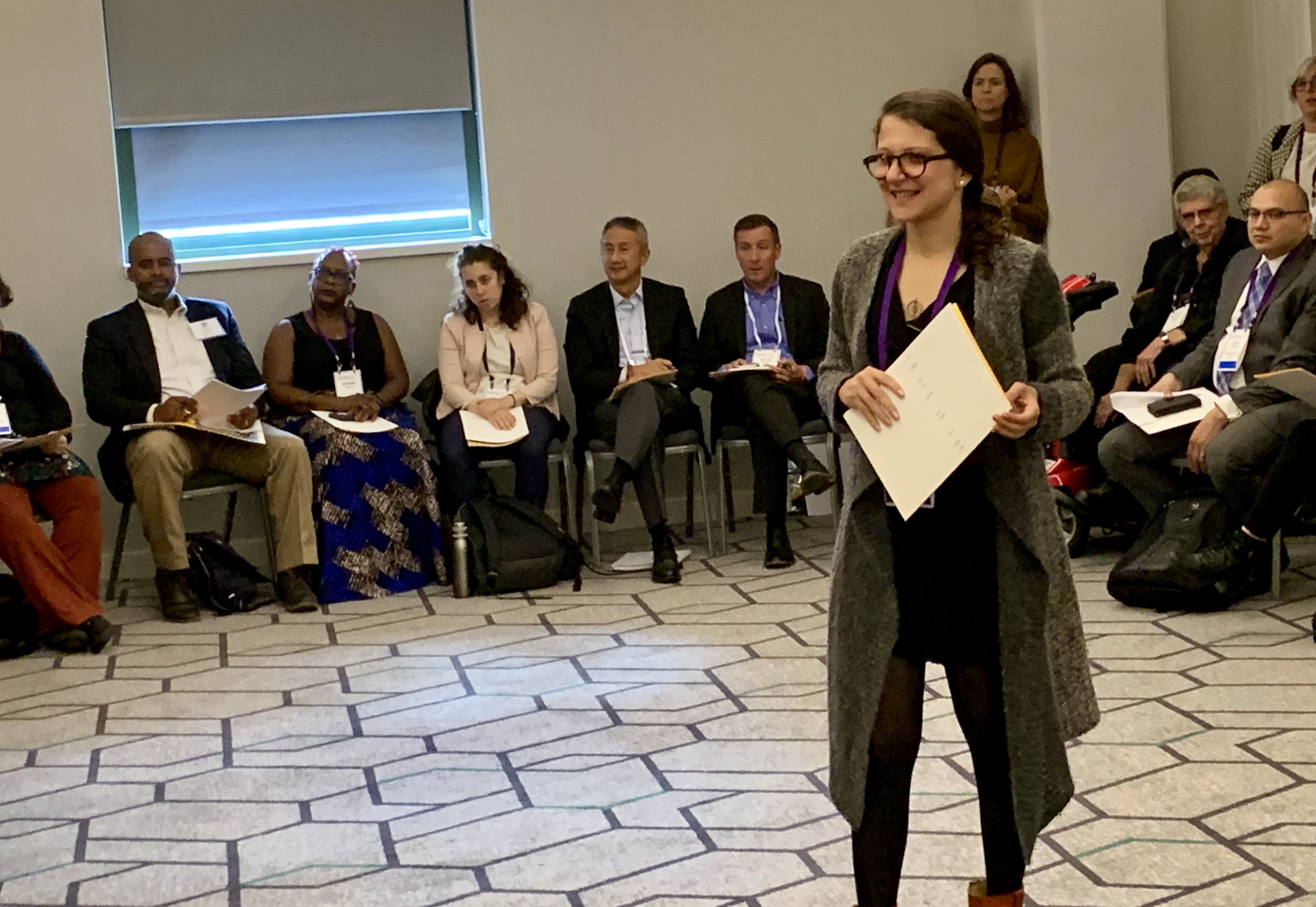
Tala Manassah and I had a terrific time at the first-ever SEL Exchange, launched by CASEL (the Collaborative for Academic, Social, and Emotional Learning), an institution Morningside Center has long collaborated with.
As Tala and I planned Morningside Center’s workshop, and the three days at the Chicago gathering, I had considerable time to reflect more deeply about how SEL contributes to whole school transformation.
Our workshop was titled Racial Equity in Our Schools: SEL is Necessary But Not Sufficient. Tala explained to participants our perspective, based on Morningside Center’s three decades of experience, and on a groundbreaking approach she and our i3 Whole School Racial Equity team have been developing over the last three years.
The essential connection between SEL and equity was hit home in the conference’s powerful last plenary, Building a Culture of Equity through SEL. In the session, organized by Rob Jagers, Vice President of Research at CASEL and Melissa Schlinger, Vice President of Practice & Programs at CASEL, five panelists engaged in a rich discussion of experiences.
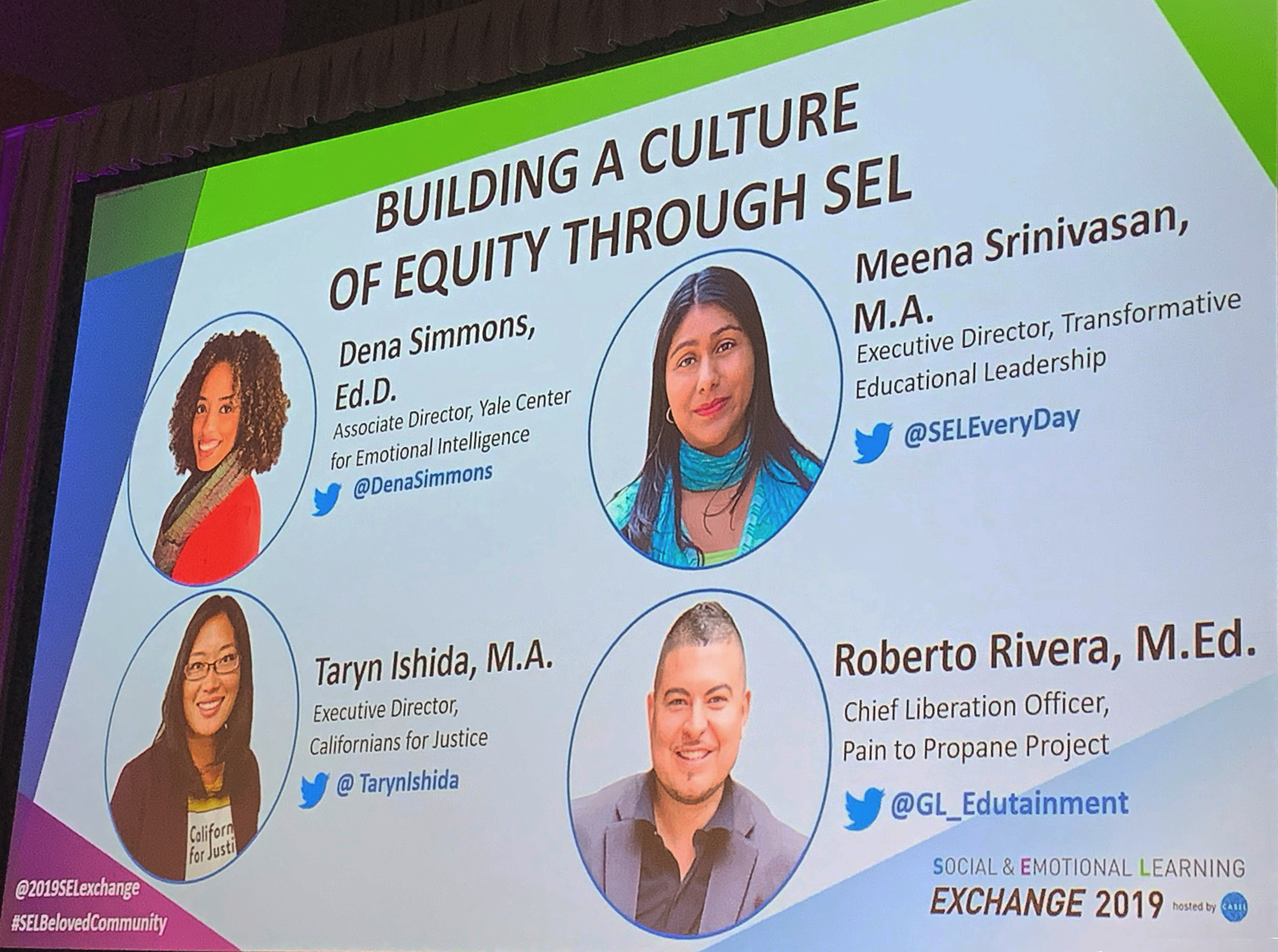
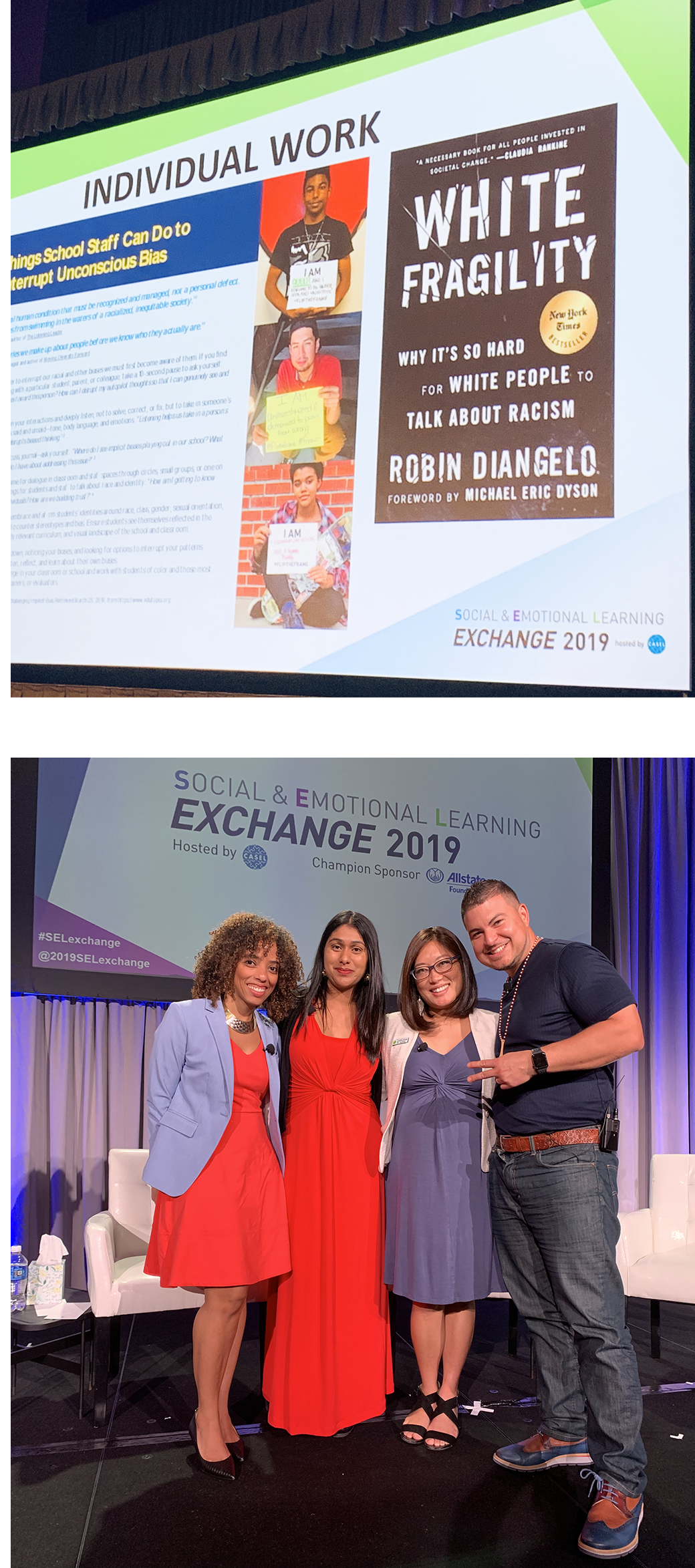
Each speaker made a compelling case for using SEL in our work, but stressed that we cannot stop there. Taryn Ishida said that in her work with Californians for Justice, organizers advocate for institutional work to build “relationship-centered” schools – but that one also needs to do the individual work of confronting learned bias, stereotypes, and norms of a white supremacy culture.
As Dr. Dena Simmons stated at one point, “we are not going to SEL-away oppression.”
We at Morningside Center take that comment to heart. We have learned that SEL skills are key as we engage in what Glenn Singleton calls “courageous conversations on race.” They are also key in tapping the power of restorative practices. Circles and other trust-building activities are a place where we can practice and develop our SEL skills, enabling us to create the culture of belonging we all crave. Students deeply need this opportunity to be vulnerable and take risks in a safe learning environment – the kind of place that punitive cultures stifle. (A new friend I met at the SELExchange has a TedX talk on the very subject: Gail Markin, From the Langley School District in Vancouver, CA.)
Thanks to all of the CASEL staff who created a vibrant space for 1500+ of us to learn and build community. We hope to see you next year!
See below for more photos from the conference!
